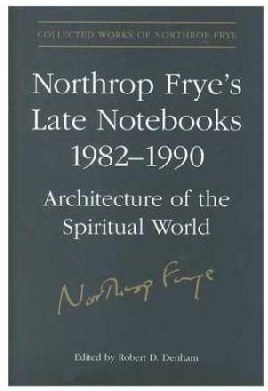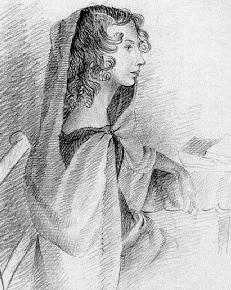
Here is a selection from the diaries and notebooks referencing obscenity.
Anatomy Notebooks.
[118] The conception of semniotes is beginning to take shape. Primitive tribes distinguish serious tales & less serious ones; this distinction appears later as the distinction between myth & legend or folktale. One has to distinguish between an intensive encyclopaedic tendency, which selects & expurgates & builds a canon, from the extensive one that we find in satire & in prose fiction generally. The latter is exploratory of the physical world: hence satire & irony are “obscene,” just as painters are forever poking into women’s bedrooms & toilets (the actual process of changing a menstrual pad or cacking on a pot is, however, considered unpaintable). Hence literature expands through satire & through the genre of fiction (cf. Shaw’s preface to The Shewing-up of Blanco Posnet on the “Eliza in her bath” problem in drama). Folktales expand the original quest-archetype, which is forever collapsing into semniotes. Cf. The Egyptian masturbating god with Jesus’ clay & spittle. Semniotes is connected with abstraction was well as morality—we often speak of “pure” abstraction, & the purifying of myth is like the purifying of mathematics. (CW 23, 241)
[The issue Shaw examines is the difference between impropriety in books and in plays. He reports that Sir William Gilbert remarked, “I should say there is a very wide distinction between what is read and what is seen. In a novel one may read that ‘Eliza stripped off her dressing-gown and stepped into her bath’ without any harm; but I think that if it were presented on stage it would be shocking.” Shaw proceeds to demolish the illustration as an argument for censorship on stage (Preface, The Shewing-Up of Blanco Posnet [New York: Brentano’s, 1928], 69).]
[Semniotes appears to be NF’s coinage, derived from σεμνός, decent, modest. On the Egyptian myth, see AC, 156.]
In the circle of myths, I must work out some more oppositions between romance and irony. Irony-satire is always what is called “obscene,” & hence is the exact opposite of the element in romance which is the release of erotic fantasy. Sadist fantasies (Romantic Agony, Spenser’s Amoret & whosit in 6—not Seven, though she fits, but the C of L [Court of Love] one—Mirabell, I think, & my William Morris stuff), masochist ones (I think less common, but cf. the C of L) & other erotica (in Freud’s sense of Eros) are found. I’ve just been reading an admirable piece of science fiction: [John Wyndham’s] “The Day of the Triffids.” Catastrophe blinds all the human race except the merest handful of survivors—Flood archetype. Brought on by human folly—Atlantis archetype. (The writer is intelligent enough to note both). Heroine makes her appearance being whipped. Harem (two extra girls) introduced, but censored out. Little girl often picked up—erotic archetype censored out. The flood archetype is the transference of an infantile fantasy: suppose everybody died except me & the people I could boss, or at least play (i.e. work) with. The comfortable good [?] & the world shut out feeling, the sense of holiday, turns up early when they loot a Picadilly flat: I don’t know if this kind of erotica, which turns up in the dismissal of catechumens theme in ghost stories (Turn of the Screw) has a name, but it’s linked with the regression to the family unit which is a part of the Flood archetype. Several important things have to be worked out. Pr. ph. 4. (ibid., 246)
Late Notebooks.
[222] Rimbaud again: “Venus Anadyomene” is a deliberately “shocking” poem, but not obscene: no hatred is expressed for the poor creature. “Mes Petites Amoureuses” I thought obscene at first, because of the hatred (“Que je vous haïs!”) and sadistic wishes to break their hips. Yet the real context of this poem is the Lettre du Voyant, in which it is included, and the letter prophesies a new age of poetry where women will have a leading part. The “amoureuses” are not girls but false Muses. He says the poem isn’t part of the argument, but (a) it is (b) one can take that remark both ways. (CW 5, 39)
[715] For mother’s generation Scott was the pinnacle of serious secular reading: no one realized that he inverted a popular formula, and isn’t “serious” in the way Jane Austen or Balzac are. This point has been confusing me: it’s involved me in one of those “revaluation” antics I detest so much, and which invariably appear when there’s a confusion of genres. If Scott had been allowed in his day to be, if not “obscene,” at least as sexually explicit as Fielding, he’d have been more centrally in the Milesian tales tradition. (ibid., 247)
[197] The whole section on the Spirit and the transition to kerygma needs [sic] more careful expression. Of the chaos of myths waiting for the Spirit to brood on them, ranging from the profound to the frivolous, the reverent to the obscene, which can be “believed”? Belief here means the creative use of a recognized fiction. Myths that cannot be “believed” remain in the imaginative corpus, as possibilities only. [See WP, 129.] (ibid., 294)
[593] I think, with a modicum of that horrible obscene four-letter word (ugh) WORK, these four chapters will come off all right. Eight will simply extend the ascending ladder into evolutionary & other views that start with nature & end with man. The intensifying of consciousness bit & the four levels of time & space will fit into the end.
[594] Now what do I do?
[595] Well, first you finish the fucking book. (ibid., 377)
Continue reading →




